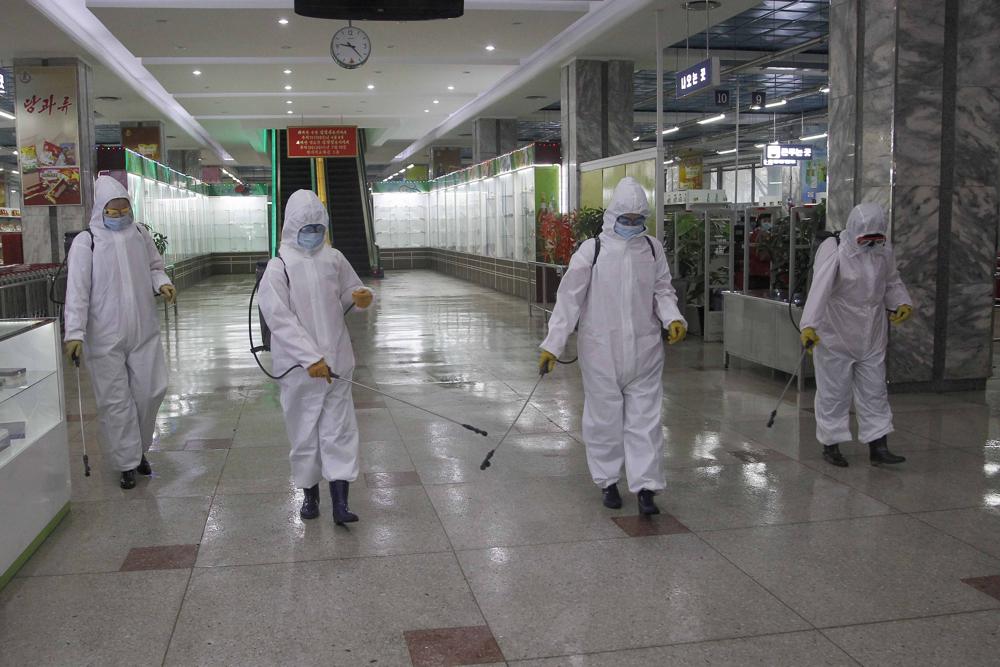Top North Korean leader calls for bolstering Navy’s combat power
The top leader of the Democratic People's Republic of Korea (DPRK) called for bolstering up the navy's combat power while inspecting the country's major shipyards
The development is a possible sign that the North is easing one of the world’s strictest pandemic border closures to receive outside help.

In this Dec. 28, 2020, file photo, staff of the Pyongyang Department Store No. 1 disinfect the store to help curb the spread of the coronavirus before it opens in Pyongyang, North Korea.
The World Health Organization is working to ship COVID-19 medical supplies into North Korea, a possible sign that the North is easing one of the world’s strictest pandemic border closures to receive outside help.
WHO said in a weekly monitoring report that it has started the shipment of essential COVID-19 medical supplies through the Chinese port of Dalian for “strategic stockpiling and further dispatch” to North Korea. WHO officials on Thursday didn’t immediately respond to requests for more details, including what those supplies were and whether they had yet reached North Korea.
Advertisement
Describing its anti-virus campaign as a matter of “national existence,” North Korea had severely restricted cross-border traffic and trade for the past two years despite the strain on its already crippled economy.
Advertisement
U.N. human rights investigators in August asked the North’s government to clarify allegations that it ordered troops to shoot on sight any trespassers who cross its borders in violation of its pandemic closing.
While North Korea has yet to report a single case of COVID-19, outside experts widely doubt it escaped the illness that had touched nearly every other place in the world.
The North has told WHO it has tested 40,700 people for the coronavirus through Sept. 23 and that all the tests were negative. Those tested in the last week reported included 94 people with influenza-like illnesses or other symptoms and 573 health care workers, according to the WHO report.
Experts say an epidemic in North Korea could be devastating, considering its poor health care system and chronic lack of medical supplies.
But despite implementing severe border controls, North Korea hasn’t shown the same kind of urgency for vaccines even as its mass immunization campaign continues to be delayed amid global shortages.
Analysts say North Korea could be uneasy about international monitoring requirements that would be attached to the vaccines it receives from the outside world.
There are also views that leader Kim Jong Un has domestic political motivations to tighten the country’s self-imposed lockdown as he calls for unity and tries to solidify his grip on power while navigating perhaps his toughest moment after nearly a decade of rule.
The latest WHO report came weeks after Kim during a ruling party meeting ordered officials to wage a tougher anti-virus campaign in “our style” after he turned down some foreign COVID-19 vaccines offered via a U.N.-backed immunization program.
(With AP inputs)
Advertisement